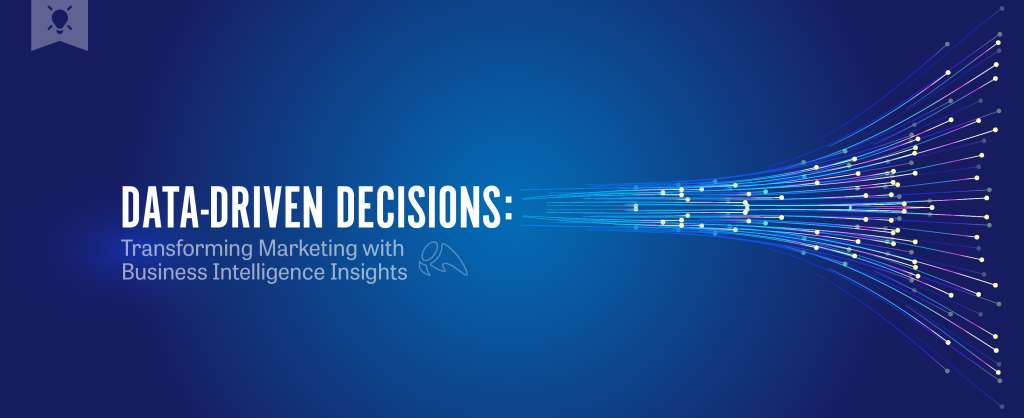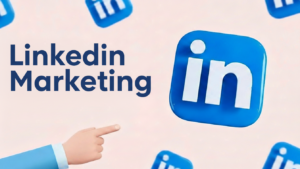Lead generation is a critical component in driving business growth within the fierce competitive landscape prevalent in B2B sales. Companies are able to streamline their sales cycles, optimize their pipelines, and create solid customer relationships through targeted lead-generation strategies. This article explores two of the most predominant benefits of lead generation in B2B prospecting: driving sales growth and improving customer engagement. We’ll cover various strategies, explore how lead generation enhances sales pipelines, and discuss its importance in relationship building within B2B markets.
Lead generation doesn’t just enhance conversion rates; it actually fortifies the whole prospecting approach. Indeed, studies indicate that B2B companies that have a structured approach to lead generation receive up to 50% more sales-ready leads. This article will break down why lead generation is so important to any B2B strategy focused on sustainable growth and meaningful customer touchpoints. In a recent survey, 90% of B2B sales professionals highlighted lead generation as a fundamental component of their strategy. This process facilitates better sales conversions, shorter sales cycles, and stronger B2B relationships.
The importance of lead generation in B2B prospecting
Lead generation is crucial in B2B sales, ensuring:
- Targeted outreach: Focus on high-potential clients with an alignment to business goals.
- Optimized sales pipeline: Keep a constant flow of quality leads to ensure higher conversions.
- Relationship building: Early prospect engagement ensures that transition and relationship building go smoothly.
Benefits of B2B lead generation
B2B lead generation fuels business growth through the right connection of a company with qualified prospects. It boosts sales by targeting the right audience, enhances ROI through personalized outreach, and builds long-term relationships with decision-makers. By focusing on quality leads, businesses save time, optimize resources, and achieve higher conversion rates to ensure sustainable success.
Understanding the impact on sales
Lead generation has a direct impact on B2B sales, thereby helping the business connect with prospects who will most probably convert. Focusing on qualified leads would lead to the development of a company’s sales and result in making every interaction qualitative, thus increasing its conversion rate.
1. Boosting B2B sales
Lead generation effectively helps a business streamline sales efforts, assuring resources are put to work on leads with the highest potential.
- Improved sales productivity: Sales teams use time on qualified leads, and optimize resources.
- Revenue growth: With more prospects entering the pipeline, the chances of sales and, subsequently, revenue growth increase.
2. Building strong B2B relationships
Lead generation nurtures relationships from the very beginning, creating trust and a foundation for long-term engagement.
- Trust building: Regular touchpoints help build a solid relationship at the very outset.
- Customer loyalty: Interacting with leads early builds brand loyalty and improves customer retention.
Key lead generation strategies for B2B sales growth
Effective B2B lead generation strategies include targeting the right audience, personalized outreach, and tools such as CRM and marketing automation. This may be in the form of content marketing, email campaigns, social media engagement, or account-based marketing. This will allow businesses to align their sales and marketing efforts to attract qualified leads, nurture relationships, and drive sustainable growth.
Leveraging techniques for better conversions
Besides volume, effective B2B lead generation is all about targeting and engaging. Personal outreach, social media marketing, and content marketing will help convert prospects into clients by building a strong sales funnel.
Targeted marketing in B2B
Targeted marketing allows B2B organizations to give their concentrate on the needs of their customers and offer them personalized solutions.
- Content personalization: Creating content that resonates with the different segments of clients boosts engagement.
- Account-based marketing: ABM focuses on high-value prospects, allowing for a more personalized approach.
The role of social media
Social media platforms are powerful tools for B2B prospecting and lead generation.
- LinkedIn outreach: It is a leading platform for B2B networking, very suitable for reaching out to decision-makers.
- Content sharing: Consistent publication of thought leadership content attracts prospects and engages them.
Optimizing the sales pipeline
Lead generation enables B2B organizations to keep the sales pipeline smooth; this would actually help prospects move along in the process quickly.
- Lead scoring: Attributing value to leads based on engagement aids in prioritizing follow-ups.
- Pipeline management tools: CRM systems can help to visualize and streamline the sales process.
Lead conversion strategies in B2B
Converting prospects to customers
Closing a lead requires a structured approach in which personalization and timing are entwined. With the help of lead scoring, automation, and CRM tools, lead-scoring companies can ensure qualified leads receive the right attention at the right time, which increases conversion probabilities.
Lead nurturing techniques
Lead nurturing helps maintain interest among prospects who aren’t ready to buy yet but show potential.
- Drip campaigns: Automated email campaigns help to keep prospects engaged over time, building familiarity.
- Personalized follow-ups: Sending personalized content to prospects based on behavior increases engagement.
Using data-driven insights
Data analytics helps identify which tactics work best, allowing for continuous improvement.

- Behavioral analysis: Understanding prospect behavior can inform better lead-generation strategies.
- Predictive analytics: Predictive models allow companies to anticipate which leads are most likely to convert.
Solutions for improving B2B lead generation
For B2B companies, enhancing lead generation strategies can make a significant difference in sales success. Here are some solutions:
- Adopting marketing automation
- Marketing automation: Marketing automation allows companies to scale lead-generation efforts and provide a consistent, engaging experience for prospects.
- Automated drip campaigns: These campaigns help nurture leads by delivering relevant content over time, increasing the likelihood of conversion.
- CRM Integration
- CRM systems: CRM systems play a vital role in managing leads and tracking prospect engagement.
- Lead scoring: Lead scoring within a CRM helps prioritize high-potential prospects, enabling sales teams to focus on the most promising leads.
- Social media strategy
- Platform Strategy: Social platforms, particularly LinkedIn, provide valuable opportunities for B2B lead generation.
- Content strategy: Sharing informative content establishes authority and draws in leads who value the business’s expertise.
- Enhanced targeting techniques
- Targeting techniques: Advanced targeting, like ABM and behavioral segmentation, ensures that marketing efforts are directed toward the most receptive prospects.
- Geo-targeting and industry segmentation: By narrowing the focus to specific industries or regions, companies can increase their conversion rates.
Additional techniques for reaching the word count target
- In-depth case studies: Showcase successful lead generation examples within specific B2B industries.
- Competitor analysis: Highlight how lead generation assists businesses in outperforming their competition.
- Prospect segmentation: Describe more sophisticated ways to segment prospects using firmographics and psychographics.
- Metrics and KPIs: Enumerate key metrics to track the success of lead generation in affecting sales growth.
Conclusion
B2B lead generation is indispensable to any successful sales strategy. Businesses can build relationships that will convert prospects into loyal customers through targeted approaches, automation, CRM tools, and personalized content. The right strategies can boost sales and contribute to long-term growth and customer loyalty. This points to the vitality of leveraging lead generation techniques as B2B companies aim to stay competitive and achieve continued success in an ever-changing market.






One Response
Valuable information. Lucky me I found your web site accidentally, and I am shocked why
this twist of fate didn’t took place earlier! I bookmarked it.